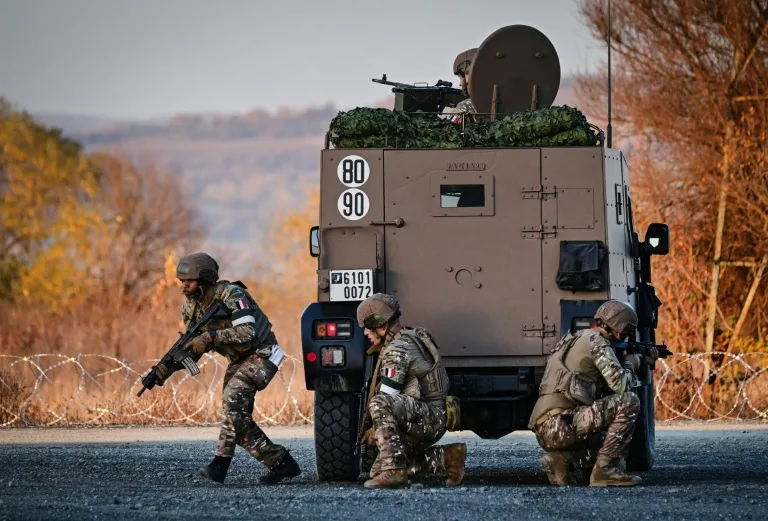News Flash
News Flash

PARIS, Nov 4, 2025 (BSS/AFP) - Europe could struggle to mobilise enough troops or quickly produce enough weapons in case of a direct confrontation with Russia, a new report warned Tuesday.
The French Institute of International Relations (IFRI), a top think tank, highlighted Europe's weaknesses in the event of a high-intensity conflict with Russia, which the authors describe as "a long-term threat".
Europe needs to demonstrate political will and "a coherent defence economic strategy" to prepare for a possible confrontation with Russia over the next five years, said the report titled "Europe-Russia: Balance of Power Review".
IFRI director Thomas Gomart told AFP it was important to "identify our strengths and weaknesses", pointing to Europe's "critical military gaps".
"European countries have the necessary potential, that is the economic resources, military capabilities and technological know-how to stand up to Russia by 2030, provided -- and this is obviously the most important word -- that they demonstrate political will," he said.
EU countries have upped military spending in a bid to contain Russia since Vladimir Putin launched a full-scale invasion of Ukraine in February 2022.
Last month, Fabien Mandon, France's chief of the defence staff, said the country must be ready in the next three or four years for a clash with Russia, which "may be tempted to continue the war on our continent".
- 'Maybe six countries' -
Although Europe enjoys an advantage over Russia in aerospace and at sea, its land forces suffer from "critical shortfalls in depth and ammunition stockpiles", the report said, also pointing to Moscow's experience in mobilising troops.
"There are reasons to doubt the political, strategic and operational availability of a number of European troops in the case of a confrontation scenario," the report said.
"As of 2025, 20 out of 30 European NATO or EU members have professional ground forces of fewer than 15,000 troops," the study said.
"Apart from a few frontline states that could mobilise reserves and national guards on their soil, the others would be unable to generate more than a couple of battalions."
The bulk of large unit formations would rest on the shoulders of "maybe six countries", including France, Britain and Germany.
Europe has also struggled to translate increased military spending into a "tangible industrial surge", the report added, pointing to the missile sector as an example.
Average annual orders placed with European defence firms have usually been in the low hundreds for offensive weapons, and in the low thousands for air and missile defence interceptors, it said.
"Such orders paint a dire picture of European missile production capacity," the report said. "It is vastly inferior to what a military confrontation with Russia would require."
- 'Ukraine shows the way' -
The authors said Europe should continue to support Ukraine, which has acquired "unparalleled experience in conventional warfare", and integrate it into the continent's security infrastructure.
Europe's security depends on two pillars -- the commitment of the United States to NATO and Ukraine's success on the battlefield, they said.
"As Ukraine succeeds in resisting the Russian threat to its very existence, it shows the way to the rest of Europe, which now depends on it for its security almost as much as the other way around," the report said.
But if either the US commitment to Europe's security wavers or Ukrainian resistance breaks down, the prospects for a direct military confrontation with Russia would "rise significantly", it said.
Regardless of whether a large-scale confrontation with Russia breaks out, Europe will continue to face "sustained Russian hybrid warfare" through disinformation, covert action and cyberattacks.
"Europe's response has been largely defensive and overly cautious," the study said. "It must now get tougher."